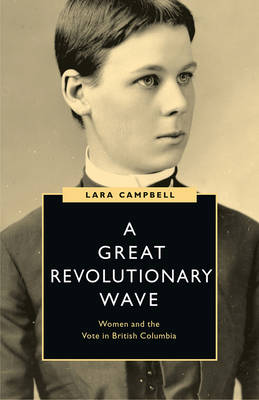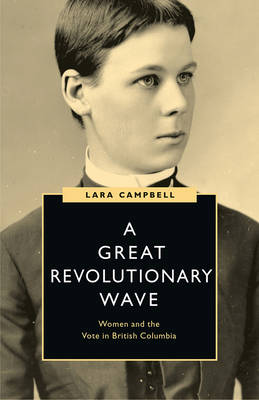
- Afhalen na 1 uur in een winkel met voorraad
- Gratis thuislevering in België vanaf € 30
- Ruim aanbod met 7 miljoen producten
- Afhalen na 1 uur in een winkel met voorraad
- Gratis thuislevering in België vanaf € 30
- Ruim aanbod met 7 miljoen producten
Zoeken
Omschrijving
Suffrage in British Columbia - and elsewhere in Canada - is best understood as a continuum rather than a clearly defined right "won" at one specific time. Although white settler women achieved the vote in 1917, after forty long years of activism, it would take another thirty years before the provincial government would remove race-based restrictions on voting rights.
British Columbia is often overlooked in the national story of women's struggle for political equality. A Great Revolutionary Wave challenges that omission and the historical portrayal of suffragists as conservative, traditional, and polite. Lara Campbell follows the propaganda campaigns undertaken by suffrage organizations and traces the role of working-class women in the fight for political equality. She demonstrates the intimate connections between provincial and British suffragists and examines how racial exclusion and Indigenous dispossession shaped arguments and tactics for enfranchisement.
A Great Revolutionary Wave rethinks the complex legacy of suffrage by considering both the successes and limitations of women's historical fight for political equality. That historical legacy remains relevant today as Canadians continue to grapple with the meaning of justice, inclusion, and equality.
British Columbia is often overlooked in the national story of women's struggle for political equality. A Great Revolutionary Wave challenges that omission and the historical portrayal of suffragists as conservative, traditional, and polite. Lara Campbell follows the propaganda campaigns undertaken by suffrage organizations and traces the role of working-class women in the fight for political equality. She demonstrates the intimate connections between provincial and British suffragists and examines how racial exclusion and Indigenous dispossession shaped arguments and tactics for enfranchisement.
A Great Revolutionary Wave rethinks the complex legacy of suffrage by considering both the successes and limitations of women's historical fight for political equality. That historical legacy remains relevant today as Canadians continue to grapple with the meaning of justice, inclusion, and equality.
Specificaties
Betrokkenen
- Auteur(s):
- Uitgeverij:
Inhoud
- Aantal bladzijden:
- 320
- Taal:
- Engels
- Reeks:
Eigenschappen
- Productcode (EAN):
- 9780774863223
- Verschijningsdatum:
- 24/07/2020
- Uitvoering:
- Hardcover
- Formaat:
- Genaaid
- Afmetingen:
- 147 mm x 218 mm
- Gewicht:
- 544 g

Alleen bij Standaard Boekhandel
+ 75 punten op je klantenkaart van Standaard Boekhandel
Beoordelingen
We publiceren alleen reviews die voldoen aan de voorwaarden voor reviews. Bekijk onze voorwaarden voor reviews.







